Carlos Coello Coello
Modeling Strong Physically Unclonable Functions with Metaheuristics
Feb 16, 2022
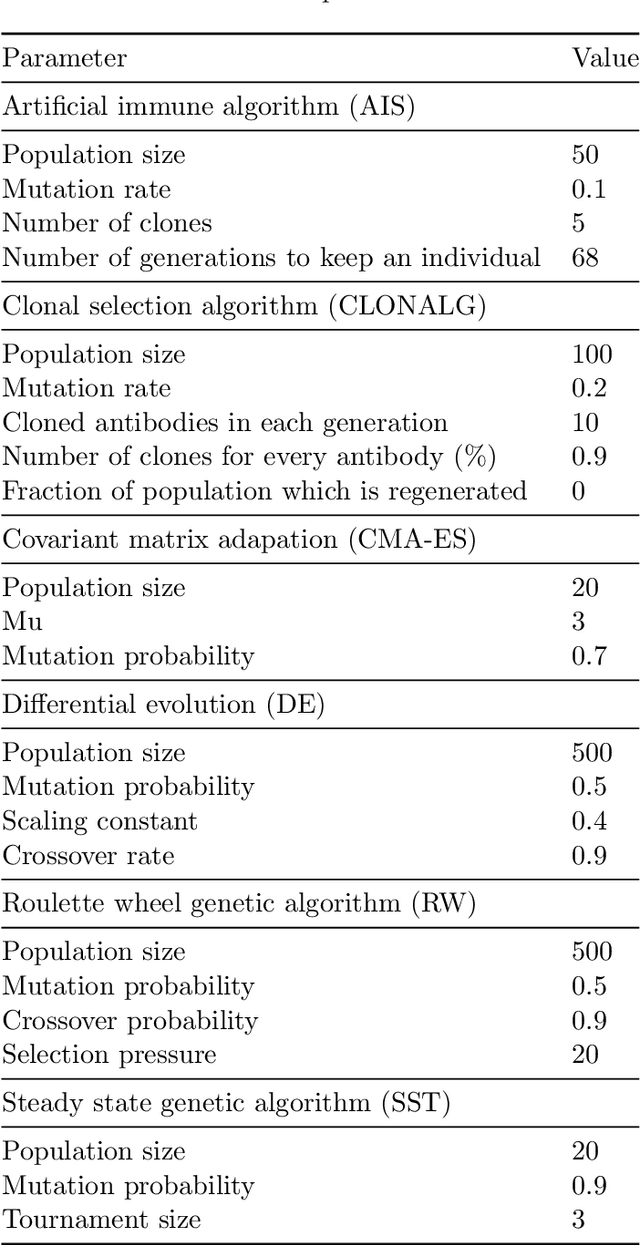
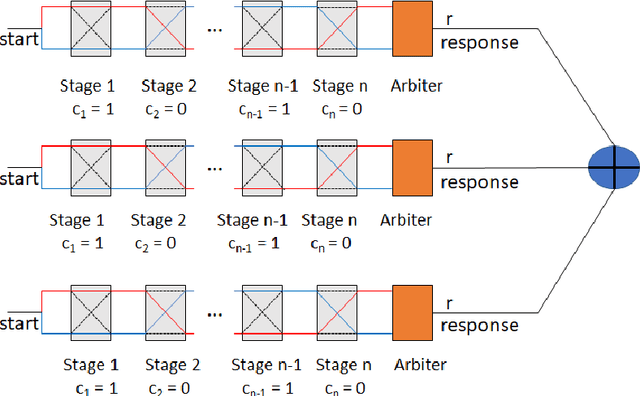
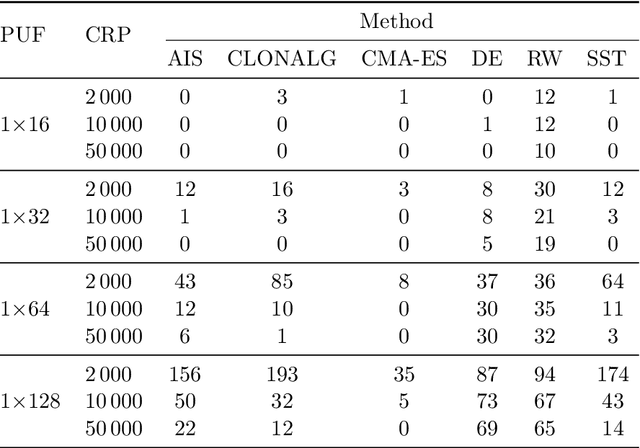
Abstract:Evolutionary algorithms have been successfully applied to attacking Physically Unclonable Functions (PUFs). CMA-ES is recognized as the most powerful option for a type of attack called the reliability attack. While there is no reason to doubt the performance of CMA-ES, the lack of comparison with different metaheuristics and results for the challenge-response pair-based attack leaves open questions if there are better-suited metaheuristics for the problem. In this paper, we take a step back and systematically evaluate several metaheuristics for the challenge-response pair-based attack on strong PUFs. Our results confirm that CMA-ES has the best performance, but we also note several other algorithms with similar performance while having smaller computational costs. More precisely, if we provide a sufficient number of challenge-response pairs to train the algorithm, various configurations show good results. Consequently, we conclude that EAs represent a strong option for challenge-response pair-based attacks on PUFs.
On the Genotype Compression and Expansion for Evolutionary Algorithms in the Continuous Domain
May 24, 2021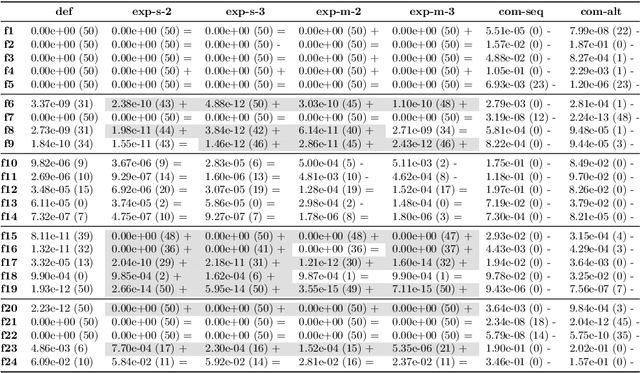
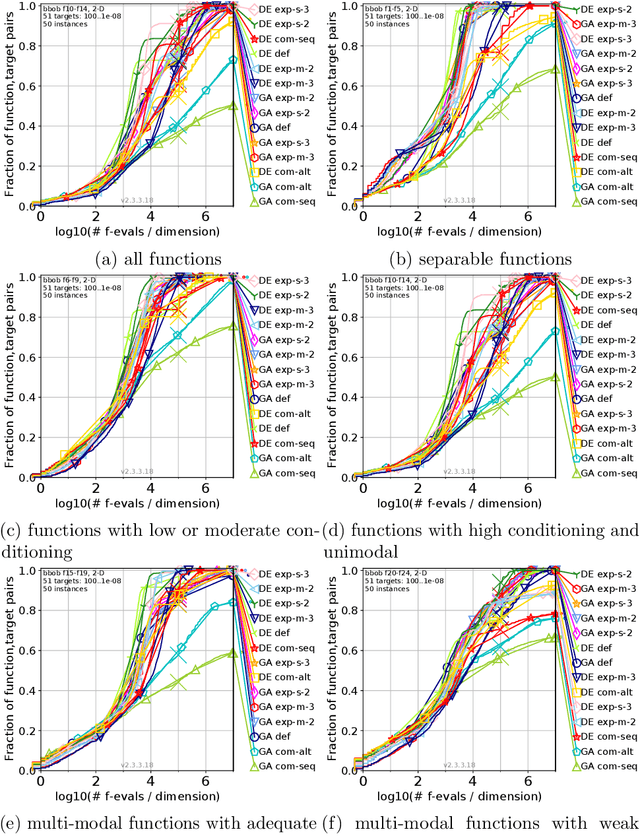
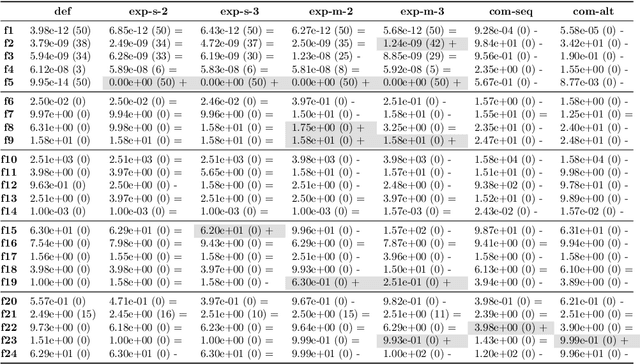
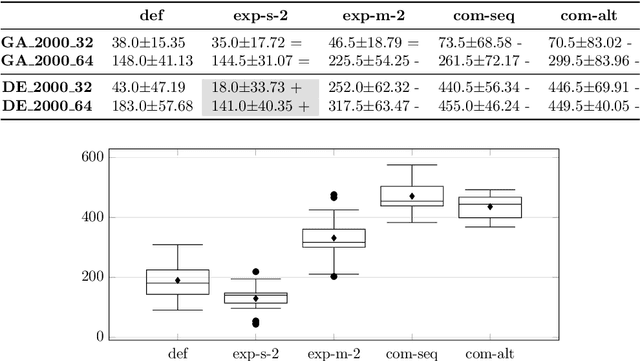
Abstract:This paper investigates the influence of genotype size on evolutionary algorithms' performance. We consider genotype compression (where genotype is smaller than phenotype) and expansion (genotype is larger than phenotype) and define different strategies to reconstruct the original variables of the phenotype from both the compressed and expanded genotypes. We test our approach with several evolutionary algorithms over three sets of optimization problems: COCO benchmark functions, modeling of Physical Unclonable Functions, and neural network weight optimization. Our results show that genotype expansion works significantly better than compression, and in many scenarios, outperforms the original genotype encoding. This could be attributed to the change in the genotype-phenotype mapping introduced with the expansion methods: this modification beneficially transforms the domain landscape and alleviates the search space traversal.
 Add to Chrome
Add to Chrome Add to Firefox
Add to Firefox Add to Edge
Add to Edge